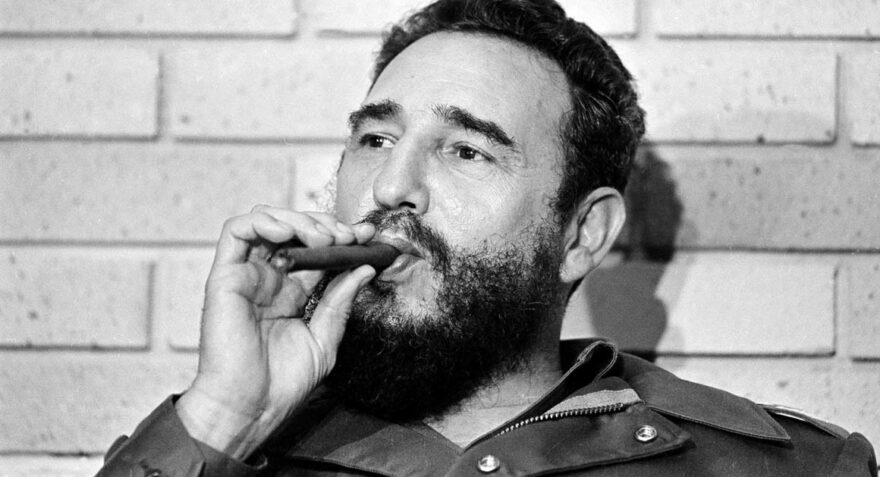
Cuba Celebrates 70th Anniversary of Castro’s Failed Terror Attack
Frances Martel at Breitbart News reports that the Cuban Communist Party staged a pre-dawn observance featuring extended speeches by its leaders on Wednesday to mark the 70th anniversary of communist dictator Fidel Castro’s failed terrorist attack on the Moncada barracks, an event the communists observe as the beginning of 1959 coup that ousted President Fulgencio Batista.
The star of the festivities — apparently scheduled to discourage acts of dissidence as protests against communism become an increasingly common occurrence on the island — was Raúl Castro, Fidel’s 92-year-old brother and the true dictator of the country.
Also present was the country’s figurehead “president,” Miguel Díaz-Canel, who appeared to threaten America by comparing American sanctions on the human rights criminals running Cuba to the barracks Fidel Castro attempted to seize 70 years ago.
“So long as the United States maintains the blockade, we will have a Moncada to attack; so long as we do not have dignified prosperity, we will have a Moncada to attack; every day, every hour, every minute we will have a Moncada to attack,” Díaz-Canel declared, according to the official newspaper of the Cuban Communist Party, Granma. Granma claimed that the regime forced 10,000 people to attend the event, which began at 5 a.m. local time.
The United States does not maintain a blockade; it implements a series of sanctions on Cuban communist leaders in response to over half a century of human rights abuses. Unlike the embargo the Cuban government imposes on imports from America, the American restrictions explicitly exempt humanitarian goods such as food or medicine.
Raúl Castro’s speech contradicted Díaz-Canel’s somewhat, in that it declared a complete victory for the communist cause and thus no further need for struggle.
“Today, with independence already conquered and the permanent presence of Fidel,” Raúl Castro claimed, “difficult as the conditions may be, the people will defend their socialist Revolution. History has proven that yes we could, yes we can, and we will always be able.”
Fidel Castro’s failed terrorist assault is a core event in the mythology of the so-called Cuban “Revolution.” On July 26, 1953, Castro led a small group of communist terrorists in a siege of the Moncada military installation, located in eastern Santiago de Cuba. The attack resulted in the deaths of 18 officials and 17 terrorists, resulting in nearly 50 killed. The terrorists failed and were swiftly arrested, including Fidel Castro. Castro, a lawyer from a wealthy landowning family, defended himself in the subsequent trial, delivering a speech in which he declared, “condemn me, it doesn’t matter, history will absolve me,” one of his most famous quotes. He was sentenced to 15 years in prison, but Batista pardoned him, allowing Castro and his communist movement to return to terrorism.
“Terrorism is an essential component of Castroism,” the Center for a Free Cuba explained in an article on the Moncada barracks this week. “The Castro regime took power believing that they had achieved their victory through guerrilla warfare and terrorism, not their successfully lobbying of the U.S. government to place an arms embargo on Batista in March 1958.”
“Terrorism is a core part of Castroism that views it as a valid tactic by the Castro dictatorship to further its goals,” it continued. “The Tricontinental Conference was held in Havana in 1966, and the Organization for the Solidarity of the Peoples of Asia, Africa, and Latin America (OSPAAL) was created to sponsor and support guerilla and terrorist groups around the world.”
Despite the Moncada attack being an embarrassing episode in poor planning on Castro’s part, he christened his terrorist organization the “July 26 Movement” and the red and black flags of that group remain prominent in many Cuban regime events. Independent outlets on the island reported little enthusiasm for the anniversary this year, however, and in many cases vocal annoyance at the regime for declaring a “holiday week” in the name of the attack.